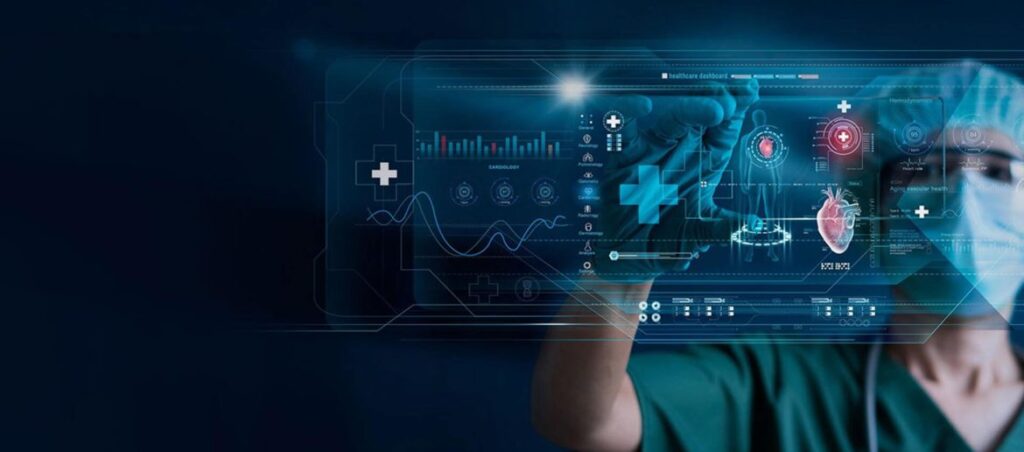Introduction
AI disease detection is transforming healthcare by enhancing early diagnosis, which is crucial for improving patient outcomes, especially in chronic conditions like cancer and heart disease. With the ability to analyze large datasets and detect patterns that humans might overlook, AI is revolutionizing how illnesses are diagnosed and treated.

AI Technologies in Disease Detection
AI technologies such as machine learning (ML), deep learning (DL), and natural language processing (NLP) are at the forefront of AI disease detection:
- Machine Learning (ML): ML models predict disease risks by analyzing patient history, genetic data, and lifestyle factors. These models play a vital role in early cancer detection and predicting cardiovascular risks.
- Deep Learning (DL): DL techniques, particularly convolutional neural networks (CNNs), excel in analyzing medical images, such as mammograms and CT scans, to identify early signs of diseases like cancer.
- Natural Language Processing (NLP): NLP extracts valuable insights from unstructured data, like clinical notes, to detect early signs of various conditions, including neurological diseases.
Case Studies
- Oncology: AI models, like those from Google’s DeepMind, detect breast cancer more accurately than human radiologists, reducing false positives and negatives.
- Cardiology: AI analyzes retinal scans and wearable device data to predict heart disease risk and detect conditions like atrial fibrillation early.
- Neurology: AI identifies early signs of Alzheimer’s from brain scans and speech patterns, enabling earlier intervention.
Benefits and Challenges of AI Disease Detection
The benefits of AI disease detection include faster, more accurate diagnoses, which lead to better patient outcomes and reduced healthcare costs. However, there are challenges, such as data quality, bias in algorithms, and integrating AI into clinical practice. Ethical concerns, including patient privacy, also need to be addressed.
The Future of AI Disease Detection
As AI technology continues to evolve, AI disease detection will drive healthcare toward proactive disease management. Overcoming challenges related to data quality, algorithmic bias, and clinical integration will be essential for realizing the full potential of AI in healthcare.
Conclusion
AI disease detection is set to revolutionize early diagnosis and improve patient care by enabling earlier and more accurate detection of illnesses. As the technology advances, AI will play an increasingly vital role in healthcare, helping to prevent diseases and save lives.
